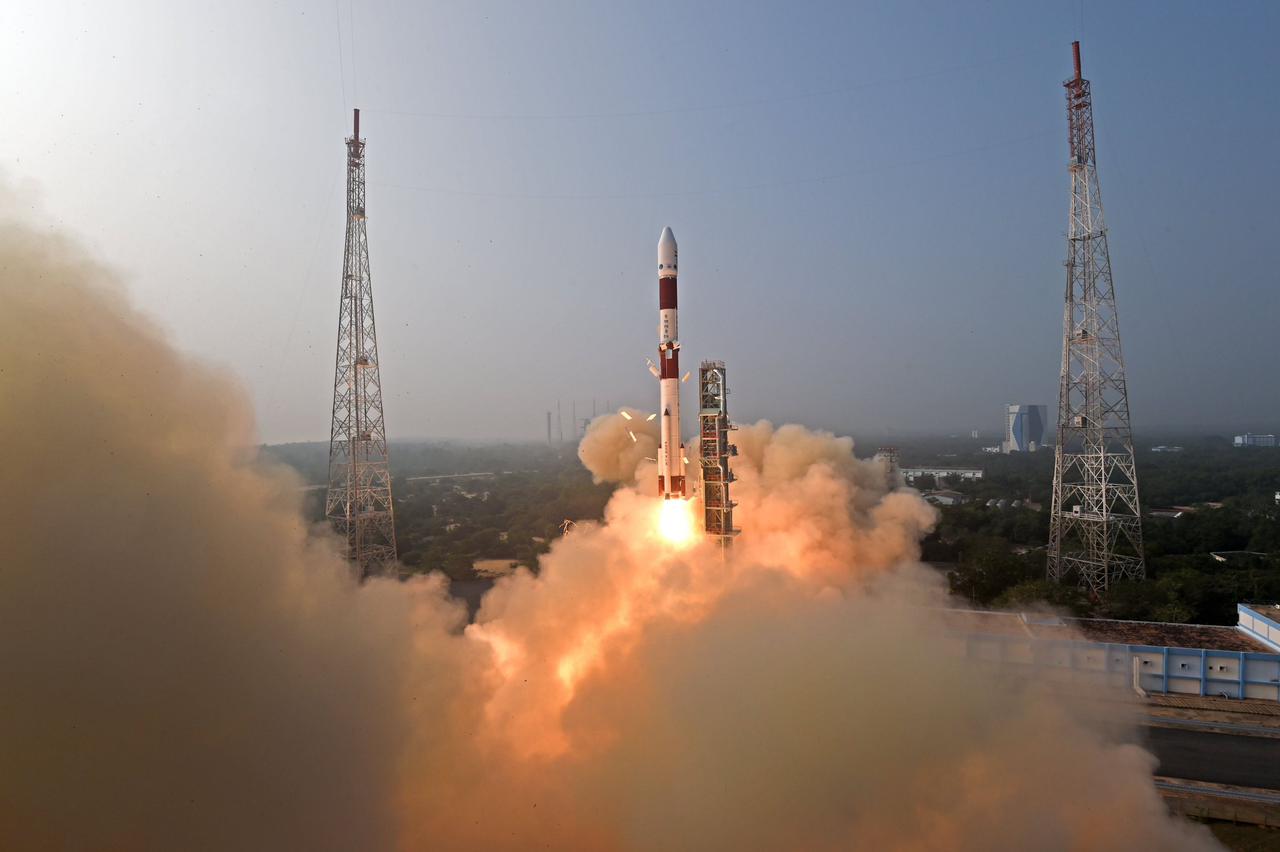The ISRO on Monday successfully launched its maiden X-Ray Polarimeter Satellite that would offer several insights into celestial objects like black holes.
“PSLV-C58/XPoSat Mission: Lift-off normal, XPoSat satellite is launched successfully. PSLV-C58 vehicle placed the satellite precisely into the intended orbit of 650 km with 6-degree inclination,” the ISRO said in a post on X.
“XPoSat health is normal. Power generation has commenced,” it added.
According to ISRO, it is the first dedicated scientific satellite from the space agency to carry out research in space-based polarisation measurements of X-ray emission from celestial sources.
“XPoSat (X-ray Polarimeter Satellite) is India’s first dedicated polarimetry mission to study various dynamics of bright astronomical X-ray sources in extreme conditions. The spacecraft will carry two scientific payloads in a low earth orbit. The primary payload POLIX (Polarimeter Instrument in X-rays) will measure the polarimetry parameters (degree and angle of polarization) in medium X-ray energy range of 8-30 keV photons of astronomical origin. The XSPECT (X-ray Spectroscopy and Timing) payload will give spectroscopic information in the energy range of 0.8-15 keV,” the sace agency said.
“The emission mechanism from various astronomical sources such as blackhole, neutron stars, active galactic nuclei, pulsar wind nebulae etc. originates from complex physical processes and are challenging to understand. While the spectroscopic and timing information by various space based observatories provide a wealth of information, the exact nature of the emission from such sources still poses deeper challenges to astronomers,” it further said.
“The polarimetry measurements add two more dimension to our understanding, the degree of polarization and the angle of polarization and thus is an excellent diagnostic tool to understand the emission processes from astronomical sources. The polarimetric observations along with spectroscopic measurements are expected to break the degeneracy of various theoretical models of astronomical emission processes. This would be the major direction of research from XPoSat by Indian science community,” it added.
The primary payload of XPoSat is POLIX (Polarimeter Instrument in X-Rays) which is designed to measure polarimetry parameters by Raman Research Institute and XSPECT (X-ray Spectroscopy and Timing) built by the U R Rao Satellite Centre, Bengaluru. The Mission life is about five years.














